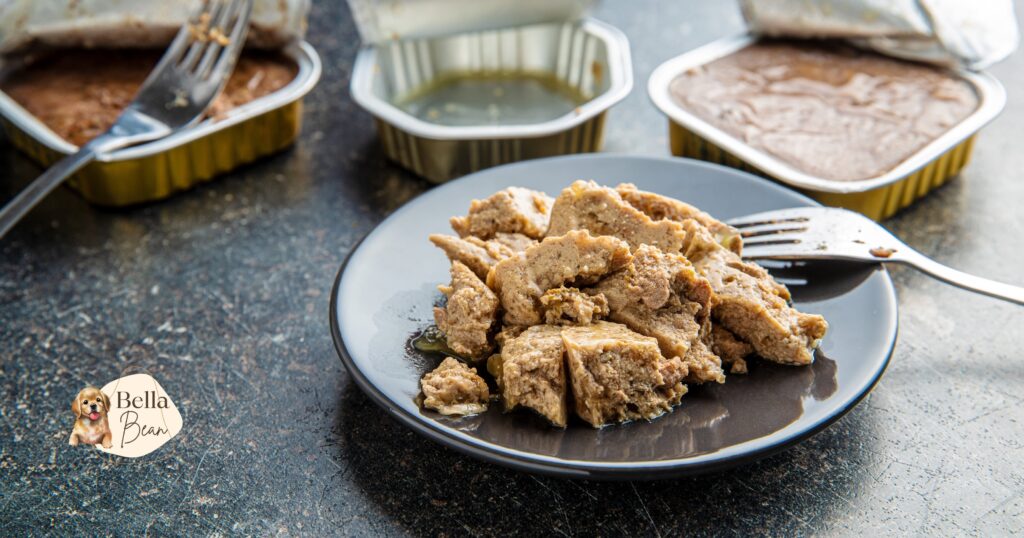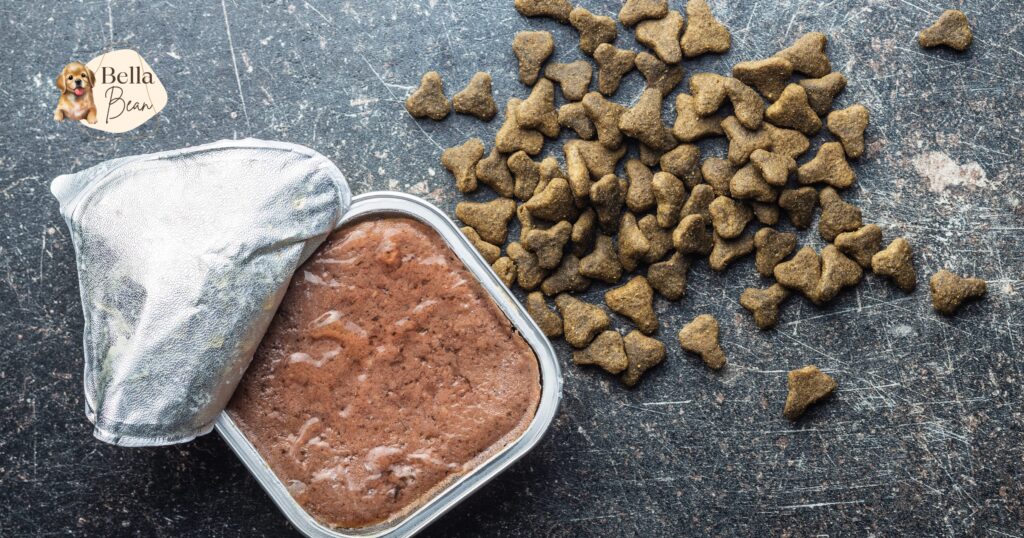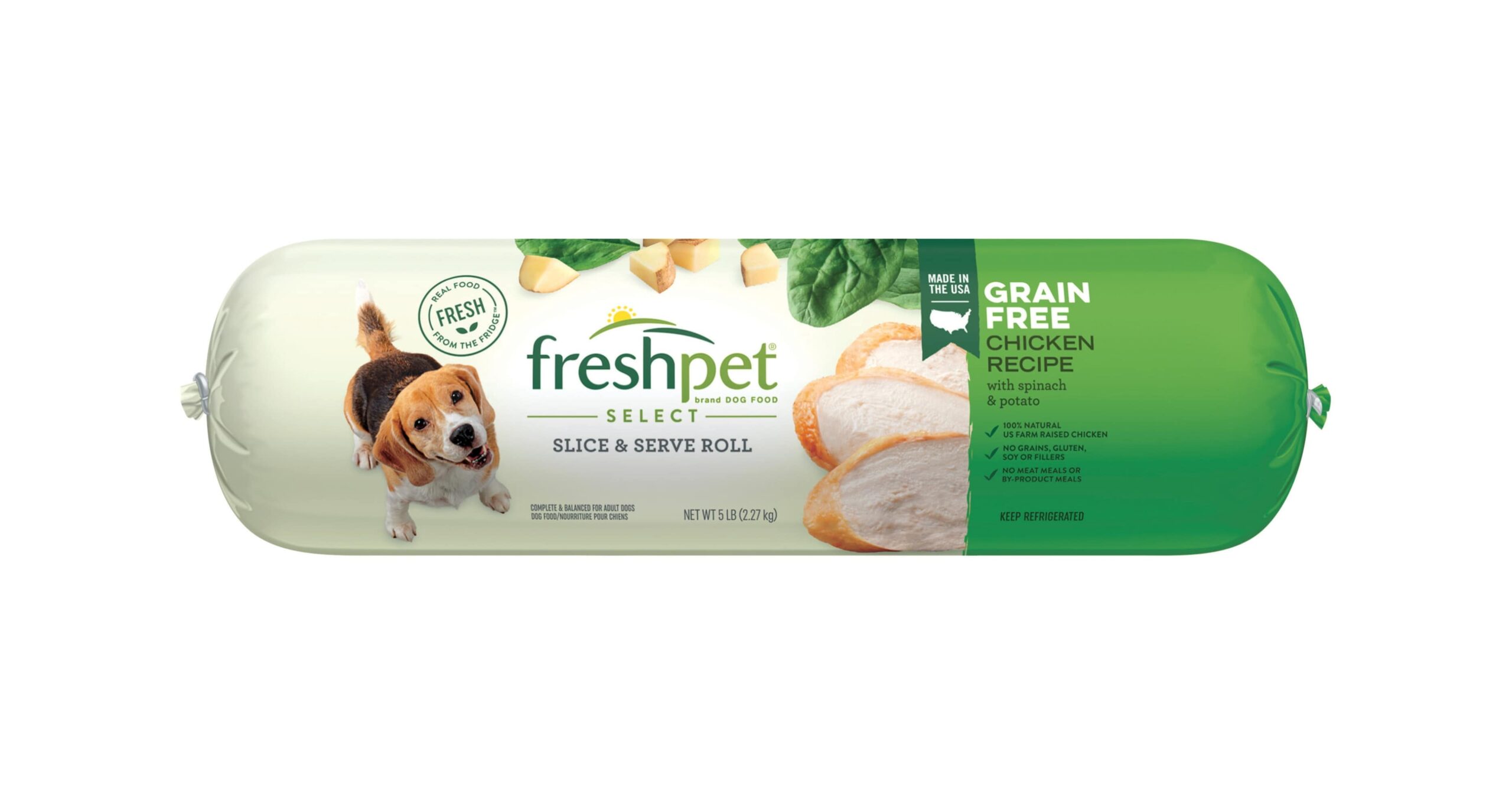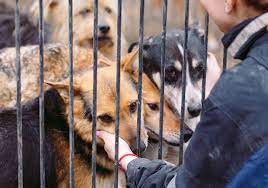Can You Freeze Fresh Pet Dog Food? While we suggest serving our food fresh from the refrigerator for optimal results, you do have the option to freeze any remaining portions for future use.”
Most of us want to make sure our pets are getting the best nutrition possible in order for them to live long and healthy lives. That’s why many dog owners opt for fresh pet food, which is made with real, whole ingredients instead of processed kibble. However, buying fresh pet food in bulk can sometimes lead to more than your pup can eat at one time. Preserving the nutritional integrity of fresh pet dog food is essential for our furry friends.
The question arises: Can you freeze fresh pet dog food? Indeed, freezing emerges as a reliable method to extend its shelf life without compromising quality. Freezing fresh pet dog food is a common practice among many pet owners, as it allows for convenient storage and portion control. This method also helps to prevent food waste, which is not only better for your wallet but also better for the environment. However, there are some important factors to consider when freezing fresh pet dog food.
Table of Contents
ToggleWhy Freeze Fresh Pet Dog Food?
Freezing serves as a practical solution to prevent spoilage while retaining essential nutrients.
Pet owners often wonder, can you freeze fresh pet dog food without losing nutritional value? It turns out, yes! Freezing helps manage their pet’s diet conveniently without frequent trips to the store.
It also allows for purchasing fresh pet food in bulk at a more cost-effective price.
Additionally, frozen fresh pet dog food is easily accessible and can be stored for longer periods compared to refrigeration.

How to Freeze Fresh Pet Dog Food?
Before freezing your puppy’s food, there are some important steps to take to ensure the process goes smoothly.
First and foremost, make sure the fresh pet food is completely cooled before placing it in the freezer.
This will prevent any moisture from forming, which can lead to freezer burn.
It’s also important to use appropriate containers or bags specifically designed for freezing food.
These should be airtight and able to withstand freezing temperatures.
Labeling the containers with the date and type of food is recommended for easy organization.
Best Practices for Freezing
- Freeze in Proper Portions: When freezing fresh pet dog food, it’s best to portion it out into individual servings. This allows for easy thawing and prevents the need to refreeze unused portions.
- Use Quality Freezer Bags: When choosing freezer bags, make sure they are thick, durable, and sealed properly to prevent any air from getting in. This will help maintain the freshness and nutritional value of the food.
- Avoid Freezing Certain Ingredients: Some ingredients, such as potatoes or dairy, may not freeze well and can alter the texture of the food once thawed. It’s best to avoid these ingredients when making fresh pet dog food for freezing.
- Thaw Properly: When it’s time to feed your pup, it’s important to thaw the frozen food correctly. The safest way is to transfer the food from the freezer to the fridge and allow it to thaw overnight. Avoid using hot water or microwaving to thaw, as these methods can cause uneven heating and potentially harmful bacteria growth.
- Portion Control: Wondering, can you freeze fresh pet dog food in portions? Absolutely! Divide the food into appropriate portions to minimize thawing and refreezing, ensuring each serving remains fresh.

Benefits of Freezing Fresh Pet Dog Food
- Long-Term Storage: By freezing fresh pet dog food, you can extend its shelf life for several months. This allows you to stock up on healthy, homemade meals for your pup without worrying about spoilage.
- Saves Time and Money: Preparing large batches of fresh pet dog food and freezing it in portions can save time and money in the long run. You won’t have to constantly make trips to the store to buy expensive commercial dog food, and you can easily grab a pre-made meal for your pup without any extra prep work.
- Provides Nutritional Benefits: Freezing fresh pet dog food preserves its nutritional value, ensuring your pup gets all the necessary vitamins and minerals in their diet. This is especially beneficial for dogs with dietary restrictions or health issues that require specific ingredients.
- Customizable Meals: When making your fresh pet dog food, you have control over the ingredients and can tailor each meal to your pup’s individual needs. You can also rotate different proteins and vegetables to provide a variety in their diet.
- Reduces Waste: By freezing fresh pet dog food, you can reduce waste by only thawing and serving what your dog will eat in one sitting. This helps prevent food from spoiling and ending up in the trash.
- Convenient for Travel: Frozen fresh pet dog food can also be a convenient option for traveling with your pup. You can pack pre-portioned meals in a cooler or insulated bag and have peace of mind knowing that your dog is getting a nutritious meal on the go.
- Easy to Store: Frozen fresh pet dog food takes up less space in your freezer compared to bulky bags of commercial dog food. This can be especially helpful for those with limited storage space.
Is frozen food good for dogs?
Yes, freezing fresh pet dog food can be a healthy and convenient option for your furry friend.
It helps preserve the nutritional value of the ingredients, allows for customizable meals, reduces waste, and is easy to store and travel with.
However, it’s important to consult with a veterinarian or do thorough research before making your dog food to ensure that your pup is getting all the necessary nutrients in their diet.
Additionally, always make sure to properly thaw and handle frozen food to prevent any bacterial contamination.
If you are considering switching your dog’s diet to fresh, frozen meals, it can be a great option for both you and your canine companion.
Conclusion
In conclusion, the answer to the question, can you freeze fresh pet dog food, is a resounding yes! Fresh pet dog food that is frozen can offer numerous benefits for your furry friend. It provides a natural and nutritious option, allows for customization based on individual needs, reduces waste, and is convenient for travel. However, it’s important to do thorough research or consult with a veterinarian before making the switch to ensure that your dog’s nutritional needs are being met. With proper handling and storage, frozen fresh pet dog food can be a healthy and convenient option for your pup’s diet. So why not give it a try and see the positive changes in your dog’s health and well-being? So, next time you’re at the grocery store, consider picking up some frozen fresh pet dog food for your furry friend.
FAQs
What are the benefits of feeding my dog frozen fresh pet food?
Freezing fresh pet food can help preserve its nutritional value, allows for customizable meals, reduces waste, and is easy to store and travel with.
Can I make my own frozen, fresh pet food at home?
Yes, you can make your own frozen fresh pet food at home, but it’s important to consult with a veterinarian or do thorough research to ensure your dog is receiving all the necessary nutrients in their diet.
How should I handle and store frozen fresh pet food?
It’s important to properly thaw and handle frozen fresh pet food to prevent any bacterial contamination. Follow the instructions on the packaging or consult with a veterinarian for proper handling and storage guidelines.
Is frozen, fresh pet food suitable for all dogs?
As every dog’s nutritional needs are unique, it’s important to consult with a veterinarian before switching to frozen, fresh pet food. They can help determine if this type of diet is suitable for your dog based on their age, breed, and any existing health conditions.
Can I mix frozen fresh pet food with dry kibble?
Yes, you can mix frozen fresh pet food with dry kibble to provide your dog with a balanced diet. However, it’s important to consult with a veterinarian for proper portion sizes and to ensure the two types of food are compatible.
Are there any precautions I should take when feeding my dog frozen fresh pet food?
As with any diet change, it’s important to introduce frozen, fresh pet food gradually and monitor your dog’s reaction. If any digestive issues or allergies arise, consult with a veterinarian immediately. Keep in mind that frozen fresh pet food can also be more expensive than traditional kibble, so it’s important to factor in the cost when making this dietary decision for your dog. Overall, with proper research and guidance from a veterinarian, frozen fresh pet food can be a healthy and tasty option for your furry friend. So go ahead and give it a try. Your dog may thank you with extra tail wags and slobbery kisses.


![The Ultimate Guide to Road Tripping with Your Dog [2025 Update]](https://bellabeanupdate.com/wp-content/uploads/2025/05/pexels-photo-1143369-300x209.jpeg)





























